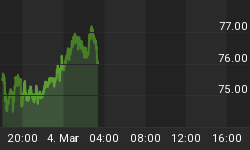China is in the late stages of constructing its thirteenth five-year plan, a process that commenced over a year ago and will result in a first draft in October. While the bulk of the plan will concern regional and domestic development, it is the international aspects that will concern the rest of the world. The plan, which will produce specific goals for 2016-20, is already having an effect on China's foreign and trade policy.
At its centre will be a shift of emphasis away from trade with the advanced nations, whose prospects are bound to subside towards their level of economic growth. Instead, to maintain the long-term objective of 7% growth in GDP China will turn her attention to improving Asia's infrastructure, a policy for which the building-blocks are now in place. The Silk Road Project is advancing from the drawing board, and the Chinese-led Asian Infrastructure Investment Bank (AIIB), which will arrange finance for projects totalling as much as $20 trillion over the next thirty years, was formally established this year.
Working in partnership with China through the Shanghai Cooperation Organisation (SCO) will be Russia, whose resources are central to Asia's modernisation. The SCO will eventually cover a territory from the Bering Strait to the Persian Gulf. To obtain extra resources, China has already established a dominant presence on the ground in Sub-Saharan Africa, secured the undivided attention of the Middle East by being its largest customer, and through its own diaspora can count on the cooperation of the South-East Asian nations currently in the West's sphere of influence. At the end of the thirteenth plan a substantial majority of the world's population will have become involved one way another.
The implications for the West are becoming apparent. We have already seen how Europe and Japan have clamoured to join the AIIB, despite their alliances with America. Unfortunately, America has been a Goliath to China's David: her mistake has been not to recognise the passing of her own era and embrace a future based on Asia.
Instead the US has sought to be obstructive. China now knows that America will always be fundamentally uncooperative and that she must plan accordingly. This is why, with Russia's support, she is ditching the dollar. She has been discouraged by America's attitude into establishing a parallel financial and monetary system. In doing so, she needs to offer something better than the US dollar as a currency medium, because for her Pan-Asian development plans she will need to attract long-term funds from Western capital markets.
This is where the new BRICS bank comes in. Its priority will be to de-risk Asian currencies which are less credible in international markets than the dollar, yen, euro or sterling (the constituents of the IMF's SDR). The obvious way to do this would be to incorporate something all Asians understand as money, and that is gold, which could be why most SCO member countries have been adding to their reserves. This would solve all cross-border currency issues within the SCO. While the West may not be initially impressed by such a development, a move by the BRICS bank to include gold in its own version of the SDR will in time highlight the relative weaknesses of a dollar-reserve system, particularly when Asia dumps its dollar reserves in favour of a BRICS super-currency.
This could mark the end of the era of pure fiat currencies, which started with the Nixon shock in 1971 when the Bretton Woods agreement died. Competition from gold-backed currencies from Asia would be the most serious threat yet faced by American hegemony.















